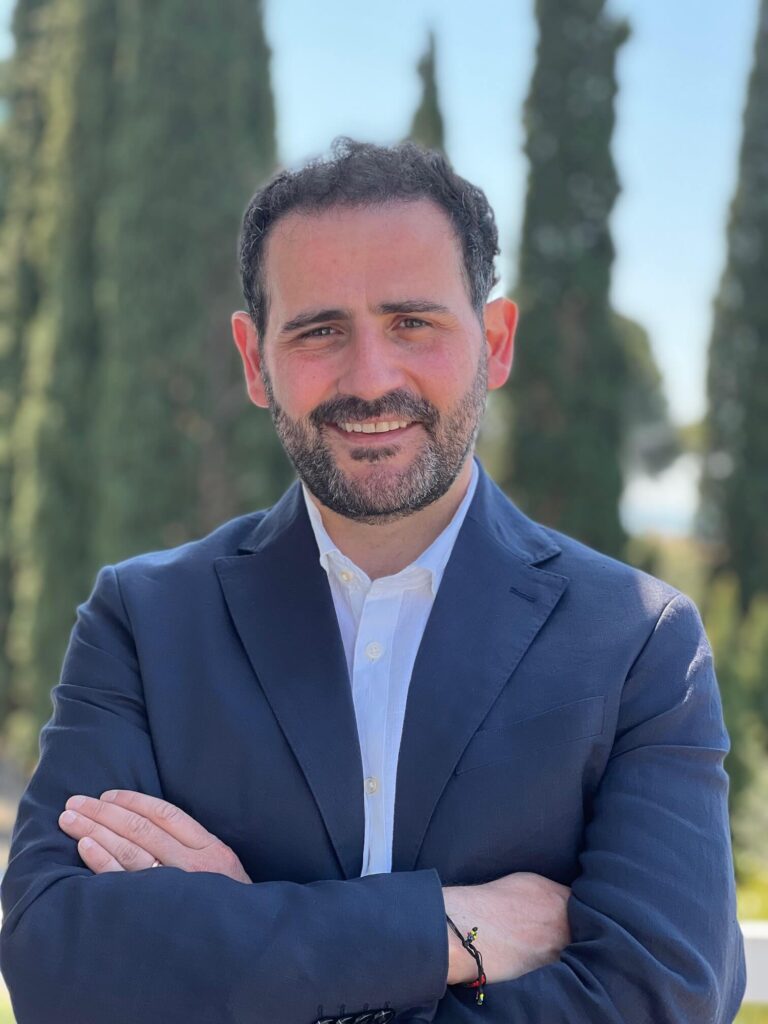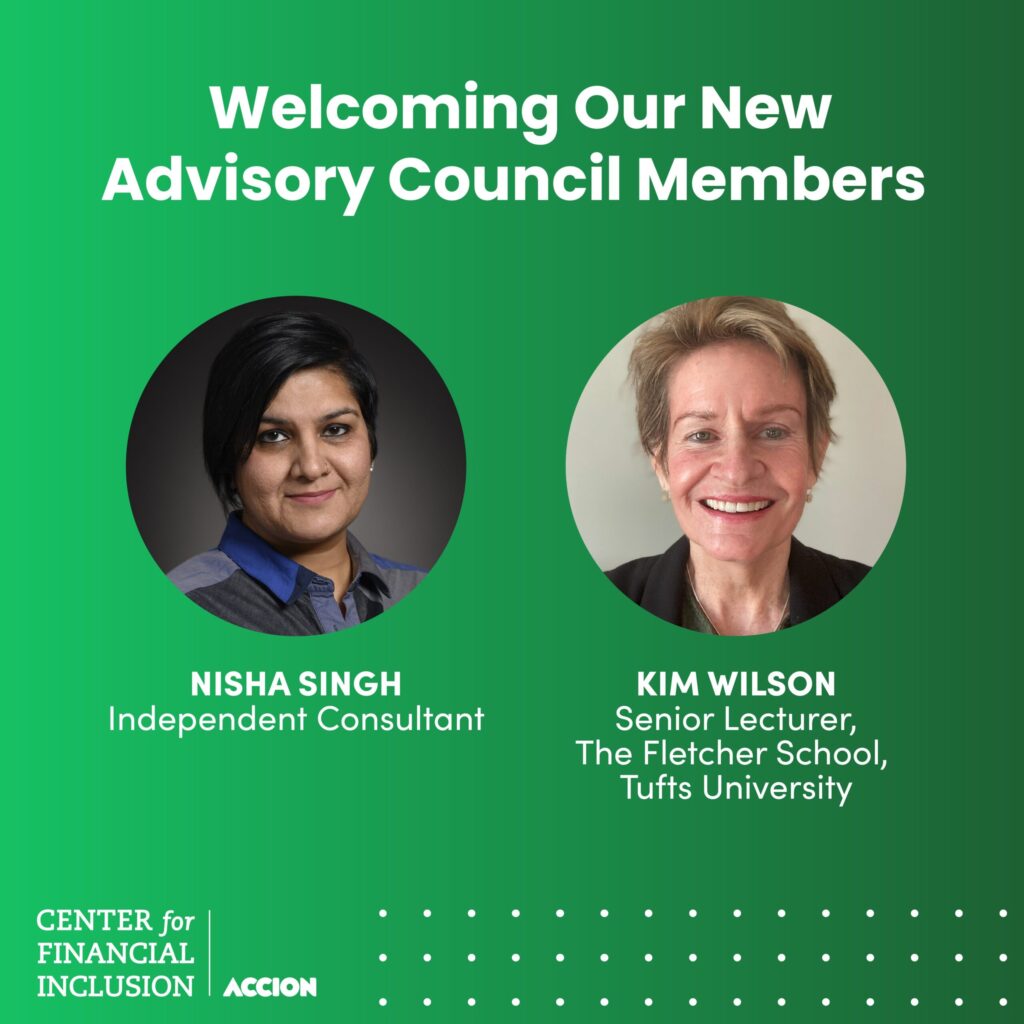
As the inclusive finance sector evolves with a heightened focus on technology and climate, so too do the concepts and ideas that most captivate our attention. Over the course of 2023, emerging terms such as digital public infrastructure (DPI), green inclusive finance, and generative AI, all unknown to the sector just a couple of years ago, have swiftly moved to the forefront of the most crucial discussions in inclusive finance today.
Yet, as some topics rise to prominence, others, although equally important, are often pushed to the sidelines. Unfortunately, gender often falls victim first; as Melinda French Gates points out, “When the global agenda gets crowded, gender equality is one of the first items to fall off.” A distressing picture painted by the UN Women’s recent report reveals that more than 340 million women and girls could be living in extreme poverty by 2030.
And then there are agendas that have always been right in front of our eyes, but that somehow never seem to get enough attention. The concept of “stability entrepreneurs,” as revealed in the Small Firm Diaries, has long been part of our collective knowledge, but is often overshadowed by the thrilling pursuit of tech disruptions and unicorns. Focusing on “stability entrepreneurs” could reignite the important, but recently overlooked, conversation on resilience in micro and small enterprises.
It is critical that those of us in the development sector balance our chase for groundbreaking advancements with the essential needs and realities of the millions of people whom we aim to serve. We must remember not to allow the pursuit of market-centric glory to sidetrack our real focus:
Are we truly leveraging finance to fight global poverty, or just repackaging old business models in new, more appealing wrappers?
This reflection is essential as we introduce and prioritize new concepts for next year. Here are three new concepts that I believe warrant the heightened focus as we go into 2024.
The Digital Public Infrastructure Debate: Frank Conversations Beyond the Hype
2023 saw a dramatic shift in the discourse surrounding digital public infrastructure (DPI). Central to the DPI debate is the ‘India Stack,’ a multifaceted, multi-layered, and fast-growing tech infrastructure. In particular, the Unified Payment Interface (UPI) model in India, has received both accolades and criticism this year.
Inefficiencies are already emerging, and addressing them promptly and adopting more participatory approaches with both citizens and the private sector will be essential.
DPI is a series of building blocks for digital transactions that the state develops for foundational systems (like UPI), much like government-built roads used by both private and public transport. DPIs help to facilitate initiatives like the Open Network for Digital Commerce (ONDC) in India for small businesses that are not included in large digital platforms. As DPI becomes front and center in development, it’s becoming increasingly likely that we’ll encounter many questions and challenges related to the role and incentives associated with state-backed and state-run initiatives. Inefficiencies are already emerging, and addressing them promptly and adopting more participatory approaches with both citizens and the private sector will be essential.
This year, CFI will be spearheading global discussions around DPIs through its work with the Responsible Finance Forum (RFF). Mid-year 2024, RFF will have a key advisory group meeting in Brazil alongside the G20 meeting of the GPFI. While there, critical questions we hope to address include: What are models of DPI that are emerging, and what are the pros and cons associated with each? And what is the long-term viability of each model?
The Data Economy: Rethinking Data Governance Beyond Open Banking
As we delve into the intricacies of DPI, another dimension comes into play: the governance of the data economy which is closely tied to but separate from the conversations around DPI.
‘India Stack’, the most cited in the context of DPI, includes several layers – the Data Empowerment and Protection Architecture (DEPA) layer being the most recent and also the least understood. The DEPA layer encompasses critical elements of data exchange and protection. It is still unknown whether this component of India’s DPI will replicate UPI’s success, or if alternative models to data governance, such as the European Union’s “common data spaces” — where open finance is interlinked with eight other real economy data spaces — or Australia’s “consumer data right” approach, will emerge as global exemplars.
From a financial inclusion perspective, individuals who lack data trails are left out of open banking. This holds true for account aggregators in India as well; the underbanked or excluded simply don’t have data to contribute, meaning that they will continue to be left out of formal banking systems. It’s time for a strategic shift towards data exchanges that mirror the economies of the poor. We need to focus on sectors like telecommunications, agriculture, mobility, small trade, and utilities. Today, although these areas offer crucial data points for exchange, they still remain conspicuously absent from the scope of current open banking.
Heading into 2024, it’s essential to overcome compartmentalized strategies in the data economy. A key goal should be to connect open banking with the broader data landscape. Emphasizing learning and policy development, we should draw on global experiences to shape inclusive data governance frameworks. This involves engaging in policy dialogues and adapting lessons from various models to meet the evolving needs of the digital economy and its diverse participants.
The Great Reckoning: Fintech’s Limits in Addressing Climate Crisis
We would be remiss to end a blog on 2023 without speaking of climate. COP28 not only emphasized the urgent environmental realities but also agreed on a significant shift away from fossil fuels. This decision underscores the immediate challenges we face: the potential displacement of millions due to climate change effects is no longer a distant threat, but rather a present-day challenge.
Despite the Intergovernmental Panel on Climate Change (IPCC) issuing warnings about environmental migration since the early nineties, disentangling the complex web of social, political, economic, and now increasingly, climatic factors driving migration is challenging. However, it’s evident that climate change is more and more becoming a significant push factor. The Internal Displacement Monitoring Centre is telling: annually, tens of millions are displaced by natural disasters, often surpassing those displaced by conflicts. In 2022 alone, over were recorded due to disasters, with a significant impact on the world’s poorest regions.
As we navigate this landscape, it’s crucial that we align our financial strategies and innovations with the real and pressing needs of the most vulnerable populations.
This reality amplifies the urgency discussed at COP28, where it became clear that fintech alone is insufficient to tackle the climate crisis. The establishment of the Loss and Damage Fund, aimed at aiding climate-vulnerable developing countries and backed by countries like Germany and the UAE, marks progress but also underlines the significant gap between global needs and the actions taken. The focus must now extend beyond traditional financial solutions to address the needs of those most affected by climate change, as underscored in CFI’s Green Inclusive Finance framework.
Developing and emerging nations are on the frontline of climate impact, grappling not just with the environmental fallout but also with the human cost of displacement and migration. As we navigate this landscape, it’s crucial that we align our financial strategies and innovations with the real and pressing needs of the most vulnerable populations.
Looking Ahead: Embracing Open Debate and Change
As we step into 2024, we face a financial landscape rife with contradictions and challenges. The DPI debate embodies the tension between incentives of state-led infrastructure, private sector innovation, and citizen’s participatory approaches. The evolving data economy prompts a reevaluation of governance and consumer rights. And the environmental crisis forces us to question the role of fintech in achieving sustainable goals.
Inclusive finance, at its core, must adapt to these changing paradigms and seek solutions that are not only innovative but also equitable and sustainable. The road ahead is fraught with controversies and difficult questions, but it is only through embracing these challenges that we can hope to build a more inclusive financial system. I look forward to what we can accomplish and how we can move the needle in 2024.










